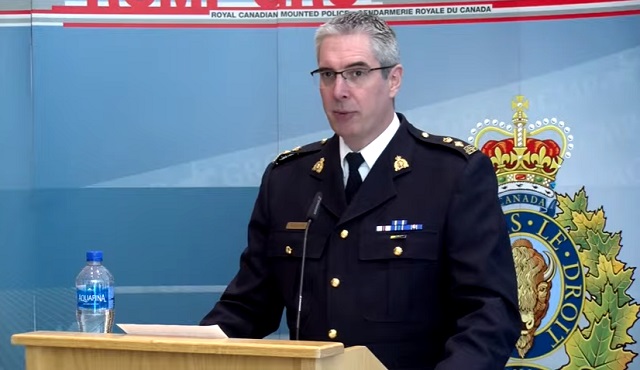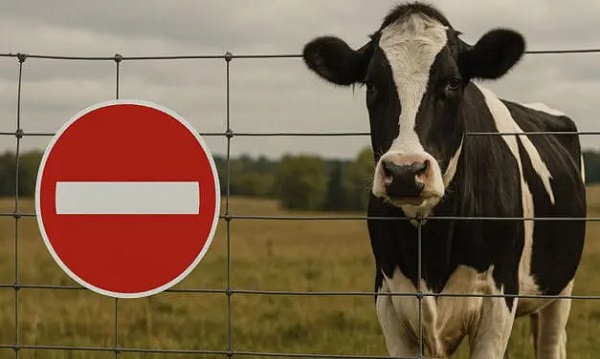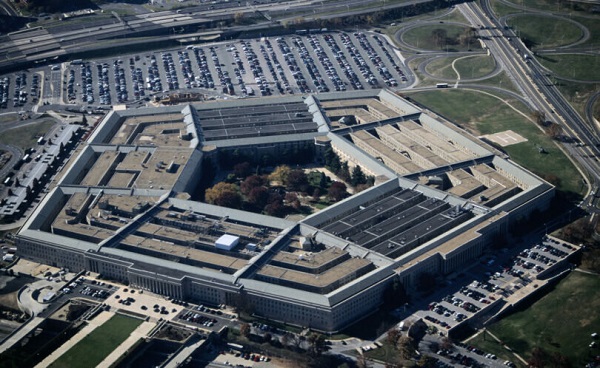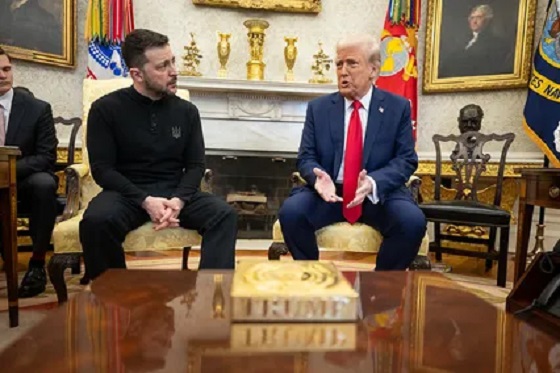Alberta
Alberta RCMP announce results of investigation into the 2017 UCP Leadership Vote

News release from the Alberta RCMP
Alberta RCMP concludes investigations surrounding the 2017 UCP Leadership Vote
In July 2017, the Wildrose Party and the Progressive Conservative Party merged to form the United Conservative Party (UCP). A UCP leadership contest followed, which was an internal UCP process with no oversight from Elections Alberta, except as it related to the Alberta Election Finances and Contributions Disclosure Act (EFCDA).
On Oct. 4, 2017, Jeff Callaway dropped out of the race and publicly endorsed Jason Kenney. On Oct. 28, 2017, Kenney was officially elected as the new UCP leader. Allegations of wrongdoing surfaced after the leadership contest. In February 2019, a complaint was received by the Alberta RCMP in relation to these allegations, which resulted in the RCMP opening an investigation into two separate allegations.
Allegation #1 – Jeff Callaway candidacy
One allegation was that Callaway entered the contest solely to attack another candidate, always with the intention of pulling out of the leadership race and endorsing a different candidate prior to the vote. Given the allegation that this candidate had portrayed himself as a legitimate candidate and, as a result, was able to solicit money from individuals who believed he was a legitimate candidate, fraud contrary to section 380 of the Criminal Code, was identified as the appropriate offence to be investigated:
- Investigators reviewed the candidate’s campaign debates and political advertisements used during the campaign. A review of the campaign’s financial records showed that, as a result, it was able to generate approximately $95,000 in financial contributions. Elections Alberta investigated Callaway’s campaign finances under the Alberta Election Finances and Contributions Disclosure Act. The results of Elections Alberta’s investigation are posted on their website.
- Alberta RCMP Investigators conducted more than 170 interviews with contributors and campaign staff, and examined over 25,000 related emails.
Outcome #1: The investigation did not uncover evidence to establish that Callaway, or any other person, committed a criminal offence.
Allegation #2 – Voter Fraud
In order to vote, a UCP member needed to register and receive a Personal Identification Number (PIN), either by phone call, email, or text message. Once the PIN was received, the member could then cast a vote by phone or by using a proprietary electronic voting platform on the internet.
The allegations were that emails were created in order to receive PINs and vote on peoples’ behalf without their consent or knowledge. Identity Fraud contrary to section 403 of the Criminal Code was identified as the appropriate offence to be investigated under the circumstances:
- The online platform used by the UCP to hold the leadership contest was identified and the RCMP obtained the voter database through a legal process, which contained data for more than 60,000 voters.
- The RCMP analysed the data and identified several suspicious cross-sections of voters where multiple votes were cast from the same phone number, or originated from the same IP address. Similar to an in-person ballot, the data did not show which candidate was voted for, only that a vote had been cast using that unique identifier.
- The RCMP generated a list of these “suspicious votes,” conducted interviews with the more than 1,200 individuals and examined their UCP membership and registration forms.
- To be clear, the number of potential votes at issue, which after investigation was less than 200, would not have impacted the leadership contest given that Jason Kenney won with 36,625 votes (61%), whereas Brian Jean received 18,336 votes (31%), followed by Doug Schweitzer with 4,273 votes (7%).The RCMP investigation did not find evidence that any leadership candidate encouraged their volunteers to engage in identity fraud.
- The service provider for the online voting platform used by the UCP was not compromised, and worked exactly as specified.
This high-profile investigation was extremely complex, and time consuming due to several factors:
- The sheer volume of data being analysed and investigated took a significant amount of time. Further, a portion of this data required that judicial authorizations be obtained both domestically and outside of Canada.
- The fact that the complaint was not received until 2019 impacted many witnesses’ recollections of the event. The 2017 UCP Leadership Contest occurred at the same time as other internal party votes. As a result, some witnesses were unclear about which process the RCMP were investigating.
- Even for cases that appear to be voter fraud, there can be innocent explanations. For example, it wasn’t illegal for one phone number or email to receive many PINs. It was also not illegal for many votes to be cast from the same IP address or phone number. In certain families living under the same roof, this was common. We also saw the same pattern in office buildings and at voting kiosks where many people voted from the same IP.
Outcome #2: While the Alberta RCMP determined that there were suspected instances of potential identity fraud, there was insufficient evidence to charge any suspect, again there was no evidence that any leadership candidate orchestrated these relatively rare instances.
The decision on whether or not to lay a charge in Alberta rests with the police. However, throughout this investigation, the RCMP did seek advice from Crown, which began in Alberta, but was later referred to the Ontario Ministry of the Attorney General who assigned Crown Prosecutors.
These Crown Prosecutors provided valuable and timely advice throughout our investigation and their assistance was greatly appreciated
It should be noted that these allegations of possible voter fraud occurred during an internal political party voting process, and in no way represents any possible fraud or shortcomings in our general provincial and federal elections.
Nothing in the investigation suggested that the UCP failed to take reasonable steps to manage their internal process. We hope that the information shared today will further reduce the risk of similar incidents occurring in the future for any political party.
The investigators received cooperation from the UCP and the leadership candidates which
assisted in moving the investigation forward.
“We would like to highlight that in investigating allegations of criminality, the thoroughness and completeness of the investigation is the standard that should be assessed and that the lack of criminal charges should not be the test of a successful investigation,” said Superintendent Rick Jané of the Alberta RCMP. “In this case, experienced criminal investigators tested these allegations. In the end, Albertans can be confident that a thorough investigation, independent of government, was conducted.”
Video of News Conference: https://www.youtube.com/@RCMPAlbertaGRC/streams
Key Statistics:
Investigators
- 65 Investigators
o 5 core investigators
o 60 additional investigators seconded for varying lengths of time
o 10 public service employees assisted in various capacities
Investigation
- 1,200 voter canvass interviews
- 563 structured interviews
o 226 hours of audio
o Conducted by two interviewers
o Totaling 420 person-hours worked
Translation
- Translation was required for Arabic, South Asian and Chinese languages
- Investigators were sourced from “K” Div Federal Policing; Auto-theft; Digital Forensic Services Units; as well as Airdrie, Canmore, Red Deer, Thorsby, High River, and Maskwacis RCMP Detachments to fulfill this need.
Financial
- $460,877 in overtime and travel expenses
o $356,288 in overtime
o $104,589 in travel expenses, with $38,647 in out-of-province expenses
Travel
- 12 out of province trips (BC, Ontario, Nova Scotia) involving 22 members
- There was no international travel
Documentation
(warrants, sealing orders, production orders, information to obtain, administration, mutual legal assistance requests)
- 7,484 PDF documents (totaling 69,922 pages)
- 20,625 digital files (totaling 54 GB of data)
Alberta
Alberta Premier Danielle Smith Discusses Moving Energy Forward at the Global Energy Show in Calgary

From Energy Now
At the energy conference in Calgary, Alberta Premier Danielle Smith pressed the case for building infrastructure to move provincial products to international markets, via a transportation and energy corridor to British Columbia.
“The anchor tenant for this corridor must be a 42-inch pipeline, moving one million incremental barrels of oil to those global markets. And we can’t stop there,” she told the audience.
The premier reiterated her support for new pipelines north to Grays Bay in Nunavut, east to Churchill, Man., and potentially a new version of Energy East.
The discussion comes as Prime Minister Mark Carney and his government are assembling a list of major projects of national interest to fast-track for approval.
Carney has also pledged to establish a major project review office that would issue decisions within two years, instead of five.
Alberta
Punishing Alberta Oil Production: The Divisive Effect of Policies For Carney’s “Decarbonized Oil”

From Energy Now
By Ron Wallace
The federal government has doubled down on its commitment to “responsibly produced oil and gas”. These terms are apparently carefully crafted to maintain federal policies for Net Zero. These policies include a Canadian emissions cap, tanker bans and a clean electricity mandate.
Following meetings in Saskatoon in early June between Prime Minister Mark Carney and Canadian provincial and territorial leaders, the federal government expressed renewed interest in the completion of new oil pipelines to reduce reliance on oil exports to the USA while providing better access to foreign markets. However Carney, while suggesting that there is “real potential” for such projects nonetheless qualified that support as being limited to projects that would “decarbonize” Canadian oil, apparently those that would employ carbon capture technologies. While the meeting did not result in a final list of potential projects, Alberta Premier Danielle Smith said that this approach would constitute a “grand bargain” whereby new pipelines to increase oil exports could help fund decarbonization efforts. But is that true and what are the implications for the Albertan and Canadian economies?
The federal government has doubled down on its commitment to “responsibly produced oil and gas”. These terms are apparently carefully crafted to maintain federal policies for Net Zero. These policies include a Canadian emissions cap, tanker bans and a clean electricity mandate. Many would consider that Canadians, especially Albertans, should be wary of these largely undefined announcements in which Ottawa proposes solely to determine projects that are “in the national interest.”
The federal government has tabled legislation designed to address these challenges with Bill C-5: An Act to enact the Free Trade and Labour Mobility Act and the Building Canada Act (the One Canadian Economy Act). Rather than replacing controversial, and challenged, legislation like the Impact Assessment Act, the Carney government proposes to add more legislation designed to accelerate and streamline regulatory approvals for energy and infrastructure projects. However, only those projects that Ottawa designates as being in the national interest would be approved. While clearer, shorter regulatory timelines and the restoration of the Major Projects Office are also proposed, Bill C-5 is to be superimposed over a crippling regulatory base.
It remains to be seen if this attempt will restore a much-diminished Canadian Can-Do spirit for economic development by encouraging much-needed, indeed essential interprovincial teamwork across shared jurisdictions. While the Act’s proposed single approval process could provide for expedited review timelines, a complex web of regulatory processes will remain in place requiring much enhanced interagency and interprovincial coordination. Given Canada’s much-diminished record for regulatory and policy clarity will this legislation be enough to persuade the corporate and international capital community to consider Canada as a prime investment destination?
As with all complex matters the devil always lurks in the details. Notably, these federal initiatives arrive at a time when the Carney government is facing ever-more pressing geopolitical, energy security and economic concerns. The Organization for Economic Co-operation and Development predicts that Canada’s economy will grow by a dismal one per cent in 2025 and 1.1 per cent in 2026 – this at a time when the global economy is predicted to grow by 2.9 per cent.
It should come as no surprise that Carney’s recent musing about the “real potential” for decarbonized oil pipelines have sparked debate. The undefined term “decarbonized”, is clearly aimed directly at western Canadian oil production as part of Ottawa’s broader strategy to achieve national emissions commitments using costly carbon capture and storage (CCS) projects whose economic viability at scale has been questioned. What might this mean for western Canadian oil producers?
The Alberta Oil sands presently account for about 58% of Canada’s total oil output. Data from December 2023 show Alberta producing a record 4.53 million barrels per day (MMb/d) as major oil export pipelines including Trans Mountain, Keystone and the Enbridge Mainline operate at high levels of capacity. Meanwhile, in 2023 eastern Canada imported on average about 490,000 barrels of crude oil per day (bpd) at a cost estimated at CAD $19.5 billion. These seaborne shipments to major refineries (like New Brunswick’s Irving Refinery in Saint John) rely on imported oil by tanker with crude oil deliveries to New Brunswick averaging around 263,000 barrels per day. In 2023 the estimated total cost to Canada for imported crude oil was $19.5 billion with oil imports arriving from the United States (72.4%), Nigeria (12.9%), and Saudi Arabia (10.7%). Since 1988, marine terminals along the St. Lawrence have seen imports of foreign oil valued at more than $228 billion while the Irving Oil refinery imported $136 billion from 1988 to 2020.
What are the policy and cost implication of Carney’s call for the “decarbonization” of western Canadian produced, oil? It implies that western Canadian “decarbonized” oil would have to be produced and transported to competitive world markets under a material regulatory and financial burden. Meanwhile, eastern Canadian refiners would be allowed to import oil from the USA and offshore jurisdictions free from any comparable regulatory burdens. This policy would penalize, and makes less competitive, Canadian producers while rewarding offshore sources. A federal regulatory requirement to decarbonize western Canadian crude oil production without imposing similar restrictions on imported oil would render the One Canadian Economy Act moot and create two market realities in Canada – one that favours imports and that discourages, or at very least threatens the competitiveness of, Canadian oil export production.
Ron Wallace is a former Member of the National Energy Board.
-

 International23 hours ago
International23 hours agoIsrael’s Decapitation Strike on Iran Reverberates Across Global Flashpoints
-

 Business2 days ago
Business2 days agoThe carbon tax’s last stand – and what comes after
-

 Business1 day ago
Business1 day agoTrump: ‘Changes are coming’ to aggressive immigration policy after business complaints
-

 illegal immigration1 day ago
illegal immigration1 day agoLA protests continue as judge pulls back CA National Guard ahead of ‘No Kings Day’
-

 Business2 days ago
Business2 days agoOur addiction to dairy supply management is turning Canada into a trade pariah
-

 Alberta2 days ago
Alberta2 days agoOil prices are headed for a hard fall
-

 Business2 days ago
Business2 days ago84% of Swiss hospitals and 60% of hospitalizations are in private facilities, and they face much lower wait times
-

 International2 days ago
International2 days agoPentagon agency to simulate lockdowns, mass vaccinations, public compliance messaging






